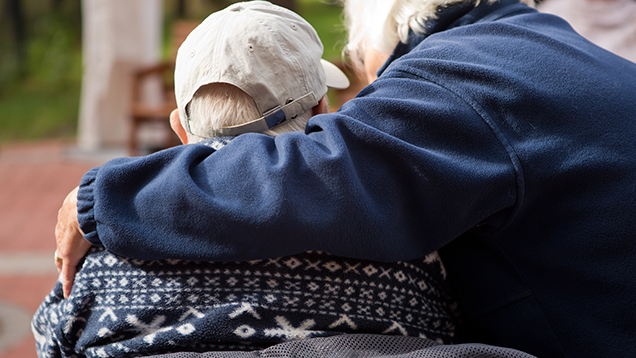Action plan aimed at ensuring a safe and secure life for all elderly people

The Action Plan titled ‘A Safe and Secure Life for the Elderly’ that was published in 2011 has now been updated. Finland’s population is getting older, and in 2030, more than one out of every four people in the country will be over 65. The feeling of insecurity among the elderly is caused by loneliness and insufficient outside assistance. Elderly people are also faced with an increasing number of new security threats, such as online and other types of fraud. The Action Plan was updated as part of the implementation of the Internal Security Strategy.
The Updated Action Plan contains 12 measures that aim to improve safety and security in the home for the elderly, to reduce the number of accidents, and to prevent and combat maltreatment, violence and crime. A great deal of work has been done in different sectors over the recent years to improve the safety and security of the elderly. The measures included in the Updated Action Plan were selected because they complement the earlier efforts.
Role of the elderly in everyday security increases as the population gets older
Finland has the fastest ageing population in Europe, and in 2030, approximately one out of every four people in the country will be over 65. It is estimated that in 2060 this figure will be 29%. In the light of this development, the role of the elderly in everyday security issues will grow.
The factors that reduce most the actual and perceived safety and security of the elderly are loneliness, insufficient outside assistance, memory disorders, physical illnesses and accidents. Elderly people are also more and more often faced with new security threats, such as online crime and fraud.
Action plan to target elderly people in a particularly vulnerable position
The Updated Action Plan is intended for public authorities and organisations working with elderly people. The aim of the Action Plan is to improve the safety and security of elderly people, particularly those in a vulnerable position. This means elderly people who, for some reason or another, do not have access to services or whose level of safety and security is not what it should be because of an illness, for example.
The actual and perceived safety and security of the elderly are affected by factors, such as functional capacity, social relations and the feeling of loneliness, which cannot be addressed through measures taken by public authorities alone. To improve the safety and security of elderly people, it is also necessary to adopt other measures. This calls for broad-based and close cooperation between different authorities and organisations. For this reason, the Updated Action Plan focuses on measures that aim to improve cooperation and exchange of information.
The Action Plan was updated in collaboration with the parties involved in the preparation and implementation of the previous Action Plan and with other stakeholders. The Updated Action Plan was discussed in the ministerial working group on internal security and administration of justice on 17 January 2018. The Action Plan was updated as part of the implementation of the Internal Security Strategy adopted in October 2017. The measures of the Updated Action Plan will be implemented before the Government submits its Report on Internal Security to Parliament in 2020.
Inquiries:
Leena Seitovirta, Senior Officer, tel. +358 295 488 244, [email protected]
Ari Evwaraye, Head of Internal Security Strategy, tel. +358 295 488 373, [email protected]
